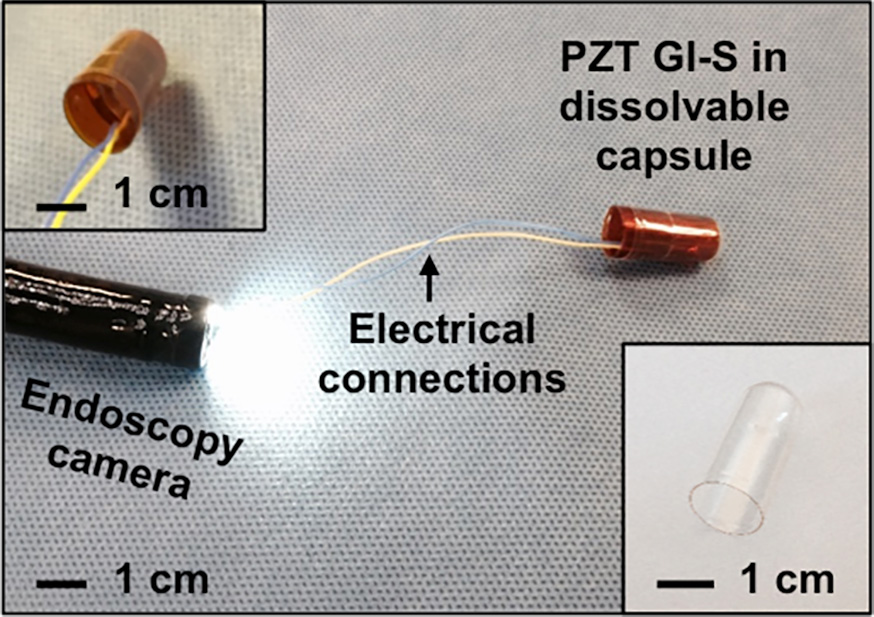Researchers develop digestible sensors for monitoring the gastrointestinal tract

MIT’s researchers spend a lot of time
thinking about digestible technology. In the past couple of years,
scientists at the school have developed all sorts of swallowable
devices, including a robot fashioned from pig parts
designed to remove batteries. The school’s Koch Institute in particular
has focused on the space, looking at ways in which digestible sensors
can be used to monitor things like drug intake.
Building on that research, a team at Koch is showing a new kind of sensor
that can be rolled up into a pill and swallowed. Once the capsule
dissolves, the sensor adheres to the stomach lining, monitoring movement
that can be used to diagnose digestive disorders and keep track of food
intake.

The system measures 2 by 2.5 centimeters
when unfolded and uses polymers with flexibility similar to that of the
human skin that stretch and move along with the gastrointestinal tract.
The sensors are piezoelectric, meaning they generate voltage when
manipulated. In the future, that property could be used to power further
sensors without a need for an on-board battery, lowering the risk of
this sort of system.
Testing the technology on pigs, the team
found that the sensors were able to stay in the harsh environment of the
tract up to two days without any issue.
“There are a lot materials that can
reside in the GI tract without eliciting significant physiological
response,” research affiliate Giovanni Traverso told TechCrunch in an
interview today. “Whereas, if you were going to implant them, they would
induce a massive inflammatory response. In this particular study, the
electronics are flexible. We placed them in the stomach and had the
device unravel and adhere to the stomach.”
Future versions could help doctors detect
disorders and monitor food intake for patients. The research was
conducted along with Boston’s Brigham and Women’s Hospital


No comments:
Post a Comment